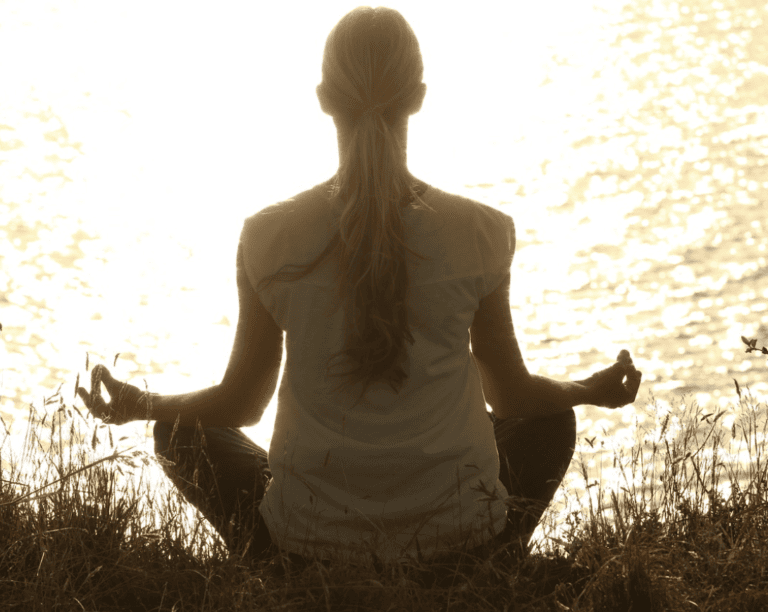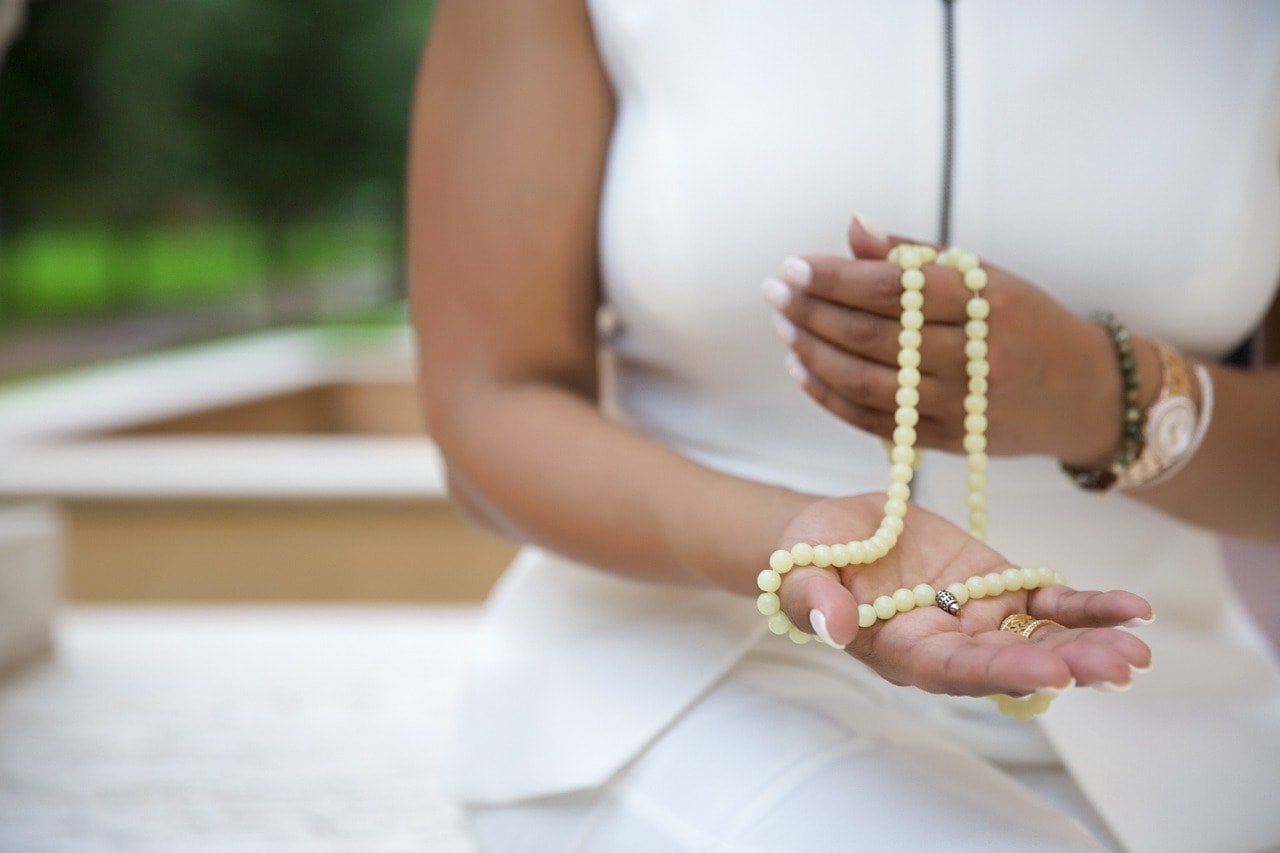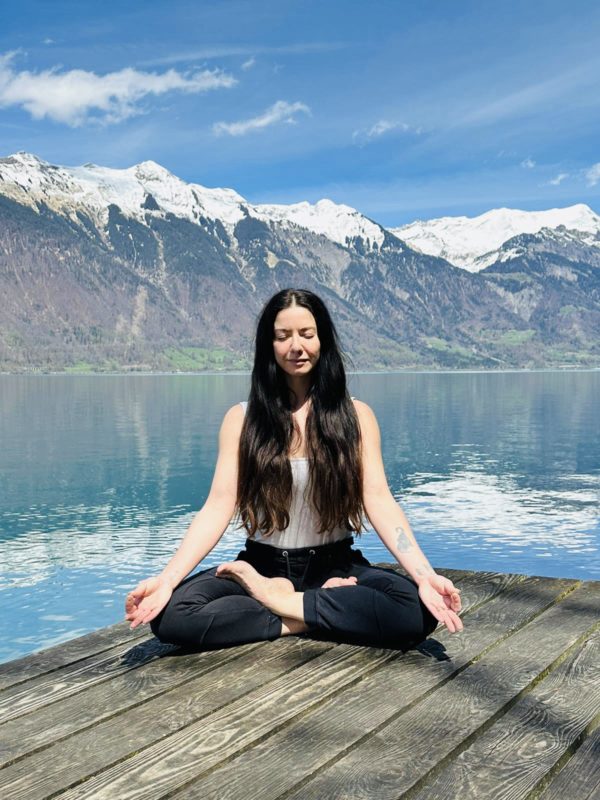An honest unfiltered review of Untold: The Retreat
When I heard Untold: The Retreat, I thought I was listening to something produced by the sensationalist newspaper The Sun, not the reputable and respected Financial Times. Even the often criticized Daily Mail, would unlikely produce such a bias investigation, of a Goenka retreat. It is a surprise that the Financial Times allowed their name to be associated with such one-sided reporting, by a journalist who has never been on a Vipassana meditation retreat herself, let alone meditated. I didn’t want to write this in fear it might give the Untold podcast more air time, but I felt I had to share my opinion on this important topic.
Disclaimer
I have been meditating on and off for 27 years and have been teaching meditation now for 15 years. So you may think this review of Untold: The Retreat is going to be bias. However I have experienced my own adverse effects of meditation, and can honestly say that certain types of meditation do not suit everyone, and that meditation can have negative effects. I suffered with anxiety and insomnia for much of my life, and when I was younger, there was a time where mindfulness meditation exacerbated both. However meditation was also ultimately what cured me, and has made me, and many others, happier, more peaceful and balanced.
Listen to Untold: The Retreat podcast on Spotify
You can listen to Untold: The Retreat on Spotify by clicking on the audio player. You can also search for the podcast on your favorite podcast app since the Financial Times has syndicated this on most major platforms.
Negative meditation side effects
I agree that certain types of meditation, like mindfulness, can amplify your experience of your bodily sensations, thoughts, senses, breathing and emotions. This can be disconcerting for some, overstimulating, or create an intimacy with yourself that you are not ready for, or in the right state of mind, to experience. This is especially true if you are dedicating many hours to these solitary practices, and then juxtaposing this with the stress and over stimulation of normal life. The contrast is akin to being alone in a cave, and then suddenly at a rock festival.
So living in silence, meditating for hours a day, as described on Untold: The Retreat, is not for everybody. And if you have any mental health issues that are unresolved, or a propensity towards depression or anxiety, spending days in silence with you own thoughts, is unlikely to be a good idea. It can make your mind race more than usual, and with that is the risk for negative thoughts and emotions arising. We need to be responsible, intelligent and think twice before embarking on a 10 days silent retreat.
A Cult
Straight off the bat, in the investigative podcast Untold: The Retreat, host Madison Marriage refers to Vipassana meditation retreats as ‘a cult’. Let’s explore 2 definitions of the word ‘cult’. According to the Britannica dictionary a cult is ‘a small religious group that is not part of a larger and more accepted religion and that has beliefs regarded by many people as extreme or dangerous’. According to Wikipedia ‘a relatively small group which is typically led by a charismatic and self-appointed leader, who tightly controls its members, requiring unwavering devotion to a set of beliefs and practices which are considered deviant’. Goenka Vipassana meditation retreats do not fit either definition.
Firstly it is not a religion and does not have members. There are tens of thousands of people worldwide who practice this technique of meditation and may go on one or more retreats in their life, or they may simply practice this type of meditation at home. There is no global network or overall leader. The retreats are completely free, so organisers ask that you carefully consider if you want to come along and ask that you don’t leave half way through, otherwise your place could have been given to someone else.
S.N. Goenka came up with this 10 days meditation retreat in the 1980’s, but he is not worshiped, and didn’t consider himself a religious leader. He wanted to share his method of meditating so others could benefit from it. He exerted no control or request of devotion. Vipassana meditation is also extremely normal and mainstream. You scan through your body for sensations and you focus on your breath.
Goenka retreats, as with most meditation styles, encourage you to recognise that your thoughts, senses and body are changing and temporary, and that the only thing that is real is your awareness. This is also referred to as your being, consciousness, spirit, universal energy, heart, love etc. This is your only truly reliable source of happiness, strength and peace. There’s nothing deviant, and definitely not extreme or dangerous, unless you are not in a fit mental or physical state to attend a 10 days intensive silent meditation retreat.
Synopsis of Untold: The Retreat
Untold: The Retreat on the Financial Times investigative podcast, covers the stories of Emily, Sarah, Jacqui and Megan, and host Madison Marriage attributes all of their mental health issues, to the fact that they attended 1 or more Vipassana meditation retreats. I feel for Stephen, Sarah and Emily’s father, who first emailed Madison, with the subject line ‘Meditation cults and mental health‘. It’s human to look for someone or something to blame when things go wrong, and even more so when you’re trying to shift any potential blame you might feel as a parent. And Madison, who usually writes financial journalism, jumps at the chance to ‘investigate’ and disparage, something she knows nothing about.
Each of the 4 episodes of 40 minutes follows the story of one of the girls that went on a Goenka retreat and the subsequent mental health issues that they experienced later. We don’t get to hear the real truth about Jacqui and Megan’s actual experiences, how they felt or whether they enjoyed the retreat or not. Sadly they had committed suicide (without leaving a note or any explanation) by the time Madison Marriage starts her investigation. We hear theories and conjecture by family members, understandably looking for someone to hold responsible. Madison attributes the suicides, and the psychosis that Emily and Sarah experienced, to them having attended a Vipassana meditation retreat. We hear sensationalist speculation instead of thorough investigative journalism, where all angles and possibilities are considered.
Madison puts on an eerie, over dramatic voice throughout her narration of Untold: The Retreat, which sounds more like she’s telling a scary ghost story, than professional reporting. She quickly brushes over the endless documented and scientifically proven, neurological and psychological benefits of meditation. She neglects to address the fact she’s reporting on 4 people’s stories out of tens of thousands that have benefited greatly from this type of meditation alone. And she only includes the more negative opinions therapists Jonny Say and Miguel Farias have on meditation side effects, and neglects to mention any of their positive views.
Vipassana Retreats
In Untold: The Retreat, Madison implies that Vipassana meditation retreats are torturous experiences where you barely eat, can’t leave, have your phone removed from you, are in silence for 10 days, and you sit for 10 hours a day meditating. They definitely are not for the faint-hearted. For people used to eating whatever and whenever they want, having their phone with them at all times, and living in a stimulating society, the thought of this retreat might sound dreadful. However, all of us that attend these retreats, including the 4 girls referenced in the podcast, choose to do so out of our own freewill. And the majority really appreciate, and benefit from, the lack of technology, the peace, and the more simple way of living, during the retreat.
It may not be an easy experience, especially the first time, but none of it is a surprise, and nothing is forced upon you. Let’s make this clear, you know what you are getting into when you sign up to a Goenka retreat, and you are allowed to leave at any time. The retreats are completely free so you are expected to commit to it, or your place could have been given to someone else. So you are discouraged from leaving during the retreat, and expected to take it seriously, but are not forced to stay. You know that you will be spending 10 days in silence, doing about 10 hours of meditation a day. And you know that you will have to hand in your phone and that you will only have 2 meals a day. They are often in beautiful remote locations, ideal for introspection, and reflection time on your past, present and future.
The Role of Guidance in Meditation
It is important to be guided in meditation to begin with, either with an app or an actual teacher. Retreats for beginners are great for that. On my retreat for instance, I introduce my clients to a few different styles of meditation, so that they get to experience different techniques, and find the one that resonates with them the most. In Goenka Vipassana retreats there is guidance, both by those running the retreat and in video or audio form of Goenka himself. However a lot of the time in spent in silence, and for beginners, or those going through negative emotions, being left in silence with your thoughts for too long, is not going to help them feel a sense of peace. The important thing is to find a teacher that you resonate with and keep being guided until you feel ready to be in silence with your thoughts.
Indiv Yoga’s Advice for Safe Meditation
Meditation should be practiced gradually and with guidance. Jumping into 10 hours of meditation as explained in Untold: The Retreat, is not a good idea if you’re trying to run before you can walk. Start with 10 mins of meditation and build up from there, using apps for guidance, or even better, an actual teacher that will discuss any issues you’re facing on your journey, and is happy to provide you with advice for transitioning in and out of meditation, and provide support and advice after the retreat. However if you are a non-profit organisation offering free 10 day retreats, your capacity for providing additional support can be limited.
If doing long periods of meditation, transition in and out of them gently. If you’ve just had a stressful drive home with lots of traffic noise or a heated discussion with someone, it is going to be extremely hard to settle your mind and body for meditation. The same goes for transitioning out of a peaceful meditation and rushing into the over-stimulation of day-to-day life. Create a ritual where you perhaps have a bath/shower, light a candle, listen to some relaxing music, having a cup of tea, pray etc, before sitting for meditation, and slowly re-energize your senses to the world, after the calm and quiet of a meditation session.
Try different types of meditations on apps like Insight Timer, where you can experiment with different styles of guided or less guided meditations. Check in with how you feel afterwards and make a note if any styles made you feel anything negative. Either choose to explore those feelings, or simply try a different technique, or a different teacher’s voice, the next time. No one method is superior to another, so find what works for you. Mindfulness, introspective, silent or still meditations may not suit you, and if this is the case, try more interactive, stimulating or movement based meditation techniques like dance, yoga or martial arts.
Make sure that when you sign up for a retreat, you are aware of what the schedule is, and intelligently assess if you are physically able to sit for hours, and mentally resilient enough to meditate for up to 10 hours a day. If you’re relatively new to meditation, or only do 1 hour a day, then it’s unwise to assume that you can jump in at the deep end. Try a non-silent retreat, where you can interact with the supportive group around you to share your experiences, and bring up any issues with other attendees or staff. We spend almost no time in silence these days, so it can be difficult to do so, and to not interact with other people around you. It can seem unnatural, so you can look into a non-silent yoga and meditation retreat like mine for instance.
Final thoughts
Untold: The Retreat on the Financial Times podcast does not give a fair and balanced report of the Goenka Vipassana retreats, however it does highlight that there can be adverse effects of meditation for those who are beginners or not in a mentally stable mindset, and either jump in at the deep end, or are doing meditation techniques that are not right for them. Just the thought of being in silence for 10 days, with 2 meals, no phone, and being encouraged to reflect on your thoughts and bodily sensations for hours a day, could put people off meditation for life. It is not easy and people should very carefully consider if they’re up for it. The retreat centers should also be very explicit about what the retreat is like, and could look into providing post retreat support for those who may struggle to adjust to the real world afterwards.
However I recently heard of a man who had never meditated before and decided to try a Goenka retreat instead of going to rehab for a cocaine addiction. He finished the retreat and has never touched drugs or alcohol since. I have heard endless positive stories like this over the years and met people who were suffering with debilitating depression, anxiety and severe addictions to drugs or alcohol, which was alleviated or cured after a Goenka retreat. I’ve met people who say that these retreats saved their marriage, or helped them make positive life changing decisions.
Endless people credit Goenka retreats for the immensely positive changes in their lives, but they’re not for everyone. There are many other types of meditation and retreats to try. Start off slow, do your research, find a teacher you like, and if it’s not working for you try a different technique. Meditation continues to help millions of people live a more peaceful life, and gives them more strength and control over their emotions, thoughts and actions. Top universities have proven the benefits of meditation, so take the word from people that actually meditate, not a financial journalist who has never meditated before.






